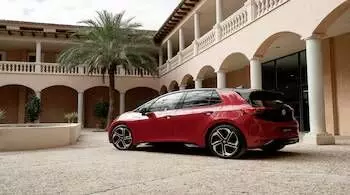‘Make in India’ for EVs Gets Boost: Centre Launches Online Portal to Attract Global Investment
India launches EV manufacturing scheme with online portal to attract global investments, offering incentives for setting up local plants by 2028.
image for illustrative purpose

In a significant push to local electric vehicle (EV) manufacturing, the Ministry of Heavy Industries has launched an online portal to invite applications under the new Scheme to Promote Manufacturing of Electric Passenger Cars in India (SPMEPCI). The initiative is aimed at positioning India as a global hub for EV production while advancing the 'Make in India' and 'Aatmanirbhar Bharat' visions.
Announcing the launch, Union Minister HD Kumaraswamy wrote on X (formerly Twitter):
“Proud to announce the launch of the online application portal for the Scheme to Promote Manufacturing of Electric Passenger Cars in India (SPMEPCI).”
Key Features of the Scheme
Application Window: June 24 to October 21, 2025
Portal: spmepci.heavyindustries.gov.in
Investment Criteria: Minimum ₹4,150 crore (approx. $500 million)
Timeline: Manufacturers must set up a local plant within three years of entering India
Import Concessions: Duty concessions (up to 15%) on 8,000 imported EVs annually priced above ₹30 lakh, to encourage initial market entry
Kumaraswamy emphasized the scheme’s broader goals, saying it supports India’s Net Zero by 2070 pledge and aims to foster innovation and sustainable growth in the automotive sector.
Who’s Eligible?
Only companies or groups with:
Annual automotive revenue of at least ₹10,000 crore, and
Fixed asset base of at least ₹3,000 crore
Mixed Reactions and Market Impact
Despite the policy push, companies like Tesla and BYD are unlikely to invest in local manufacturing. Tesla appears to be opting for imports from its German plant, while BYD’s plans are reportedly hindered by regulatory concerns. On the other hand, Vietnam’s Vinfast Auto is already constructing a factory in India.
Global auto giants including Mercedes-Benz, Hyundai, Kia, Skoda, and Volkswagen may express interest under the new scheme. However, shares of Indian EV leaders Tata Motors and Mahindra & Mahindra fell on June 24, mirroring broader market trends.
Challenges and Cautions
The Economic Survey 2025 highlights the need to reduce India’s dependency on imported critical minerals like lithium and cobalt, primarily sourced from China. The Global Trade Research Initiative (GTRI) has urged investment in alternative battery technologies that rely less on scarce materials.
The Survey also stresses the importance of public transport as a more sustainable and land-efficient approach to EV adoption in India.
With this portal launch, the government has laid down a roadmap for domestic and global auto firms to deepen their manufacturing roots in India. Whether India can rise as a global EV powerhouse will depend on the policy’s execution and investor response in the coming months.

